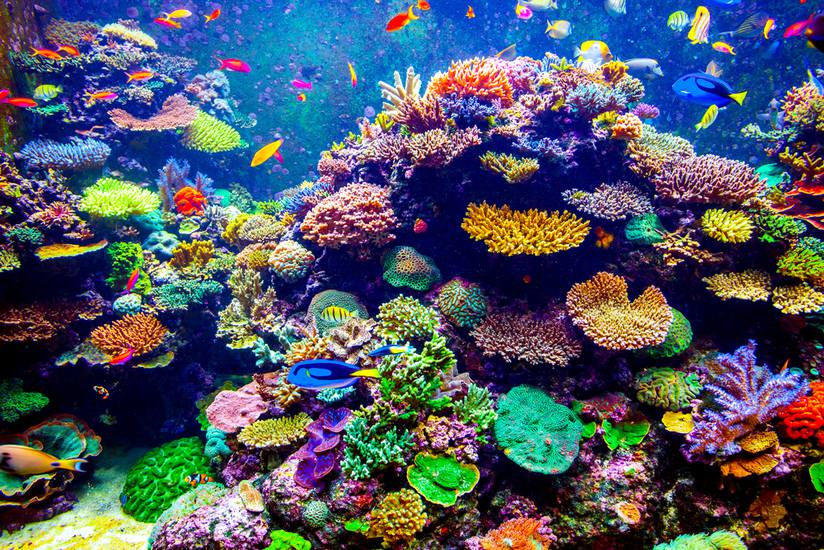Facts:
-
Australia’s Great Barrier Reef, the world’s largest coral reef system, could suffer a bleaching event every two years by 2034 under the current level of greenhouse gas pollution, finds a new study.
What are Corals?
-
Corals are 500 million years old. Starting off as simple, solitary organisms, they have come a long way before evolving into the reefs we know today.
-
Over the years, corals formed colonies when conditions were favourable.
-
They withered in mass extinctions, only to reappear after each event in a different shape and form.
-
They have come and gone throughout the geological record. About 210 million years ago during the Triassic Period, things began to change.
-
A massive worldwide coral-reef expansion was taking place and the hitherto lonely corals met algae.
-
Corals began to offer algae shelter, while in return, the latter offered nutrients from photosynthesis.
-
Algae added colour to corals’ life. This symbiotic relationship has kept corals, algae and coral reefs alive all along.
-
Many times corals have had to expel algae for various reasons, mostly due to ocean warming.
-
And every time they expelled algae, the corals lost their colour ( bleached). The marine life that made the reefs their home have been left in the lurch. But they have always got back together, once the corals recovered.

Threat to Corals
-
But the bleaching experienced in the recent past has been different.
-
Scientists have predicted that the back-to-back severe bleaching events will leave little chance for recovery, especially in Australia’s Great Barrier Reef. This means two-thirds of the reef are dying.
-
According to a recent study published by the Climate Council, it has been found that the Great Barrier Reef could suffer a bleaching event every two years by 2034 under the current level of greenhouse gas pollution.
-
According to the study, 70 % of coral reefs will be at risk of long-term degradation by 2100 if the global temperature rises by 1.5 degrees Celsius above pre-industrial levels.
Significance of Corals
-
Coral reefs provide habitats for one in four marine species.
-
Reefs also form crucial barriers protecting coastlines from storms.
-
They provide billions of dollars in revenue for countries from tourism and fishing.
-
Many of the compounds are used in human medicines.